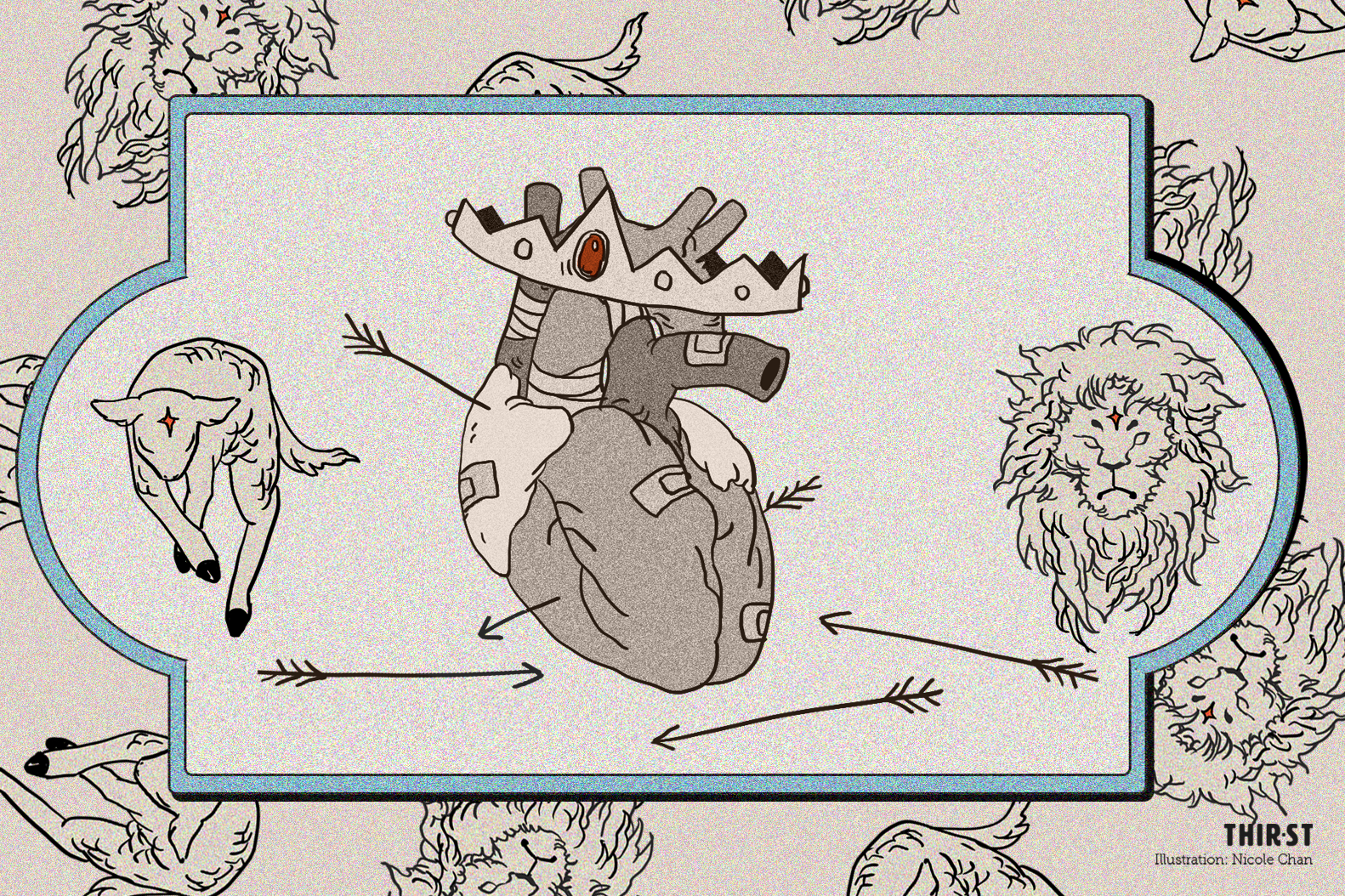“Courage isn’t about not being afraid. It’s about doing the right things even if you’re afraid.”
This memorable quote by Fayez*, an Egyptian missions leader with more than 25 years of experience of sending and caring for cross-cultural workers, on Day 1 of Courage Calls set the tone for the rest of the conference.
Organised by the Fellowship of Missional Organizations in Singapore (FOMOS), the missions gathering was held in a hybrid on-site and online format from September 30 to October 2.
Over three days, as speakers shared about what it meant to serve in countries where their lives were constantly at risk, it became clear that they each had to grapple deeply with the notion of suffering.
Understanding and being prepared for suffering was the key to their ability to do the “right thing” even though they were afraid.
With the growth of secularism and the rise in persecution of religious groups around the world, panellists and participants talked about one thing that would mark the next generation of God’s global servants from Singapore: courage.
1. SUFFERING DOESN’T MEAN WE AREN’T SUCCESSFUL
Some of you might be familiar with the rap album Suffering from Success. But it turns out that it’s a little different for Christians: Suffering can be our success.
“Singapore churches all have a bit of the prosperity gospel in all of us… the belief that God is blessing us when we do well, rather than having a good theology of suffering,” observed Dr David Tan, the then Executive Director of Wycliffe Singapore, a Bible translation organisation.
“We have a tendency to focus on the practical, fast, convenient and efficient,” he added.

Indeed, if Jesus were a missionary today and we were His sending church, what might we expect of Him after a few years?
If we were expecting a new church building with thousands of new converts, then we might be sorely disappointed.
And if we were alive during Jesus’ time, we might have deemed His earthly ministry a failure as we watched Him suffer on the Cross.
But then, wasn’t that the end goal of His ministry? Feeding and healing the multitudes — those were things that He did along the way.
Along the way to the Cross to die for our sins, so that by His wounds we are healed and have life (1 Peter 2:23-24)
2. SUFFERING INVOLVES FELLOWSHIP
The word “incarnational” was also used by many of the speakers to describe Jesus’ ministry — and rightly so.
The Father didn’t just send “thoughts and prayers” to us.
He sent His only Son in human form: Jesus left Heaven to be with us, Jesus became a man to suffer with us.
Even as the conference explored missions in the digital space, the idea of being “incarnational” was emphasised.
How this gets done certainly looks different, but at its core, the concept is the same.
“Missions is about going where people are: it’s incarnational,” explained Simon Seow, co-founder of Indigitous, a global community of Christians who are using their talents for God in the digital space.
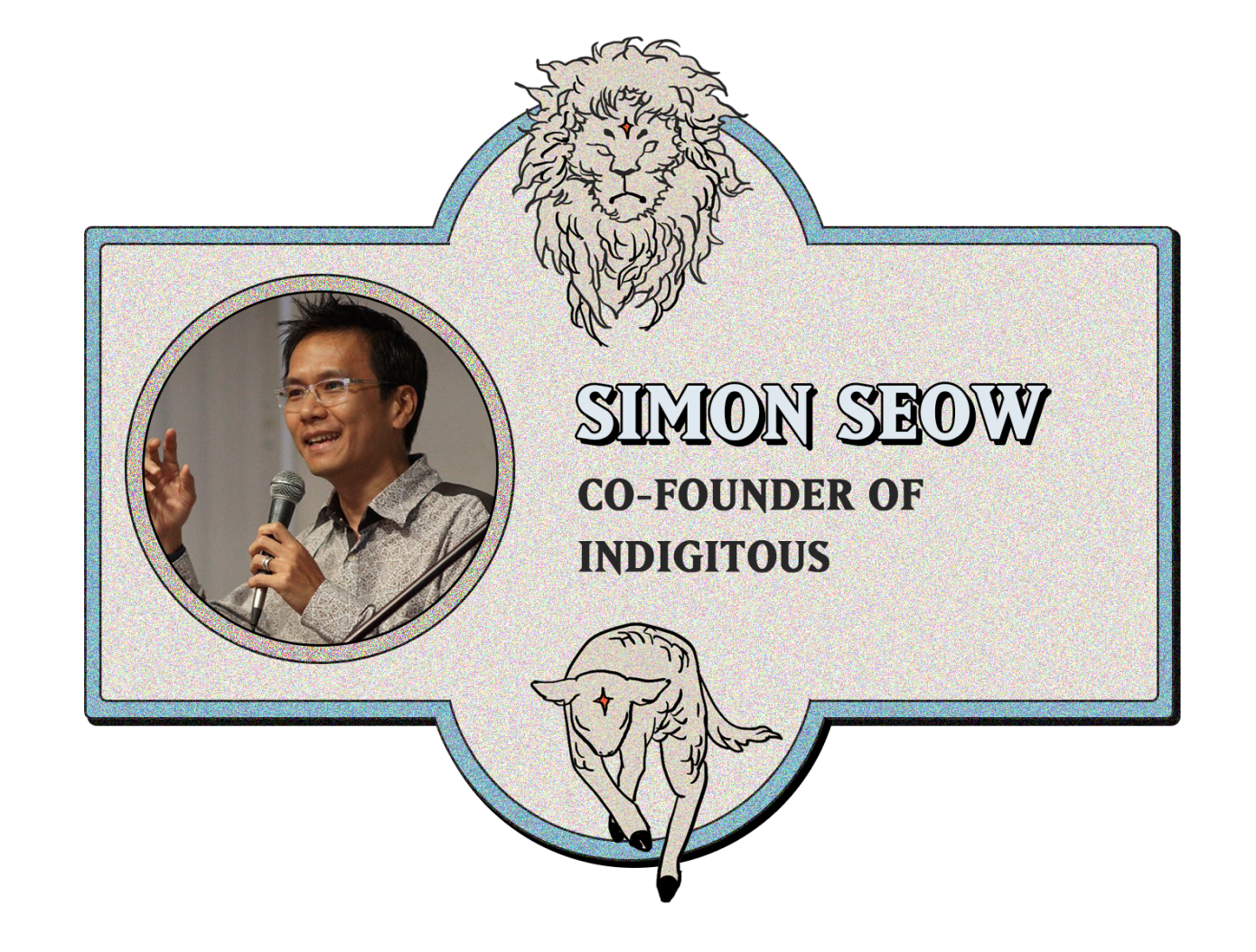
Germaine*, who works with Syrian refugees, also experienced this first hand when she had to pivot her ministry online after COVID-19 hit.
Making use of the ubiquity of smartphones where she used to serve, she did her best to bridge the distance and bring joy to a friend by giving her a tour of Singapore over a video call.
“It’s important to remember that the person behind a screen has a name. Each person matters to God,” noted Simon.
“We need to know what people care about before we start to share the gospel with them. Even as we live in a hyper-connected world, we can still feel very isolated.”
Indeed, when we take the time to understand the needs of others and be present with them in their suffering, we transcend all kinds of divides (even digital ones) and help to incarnate Christ Himself in their lives.
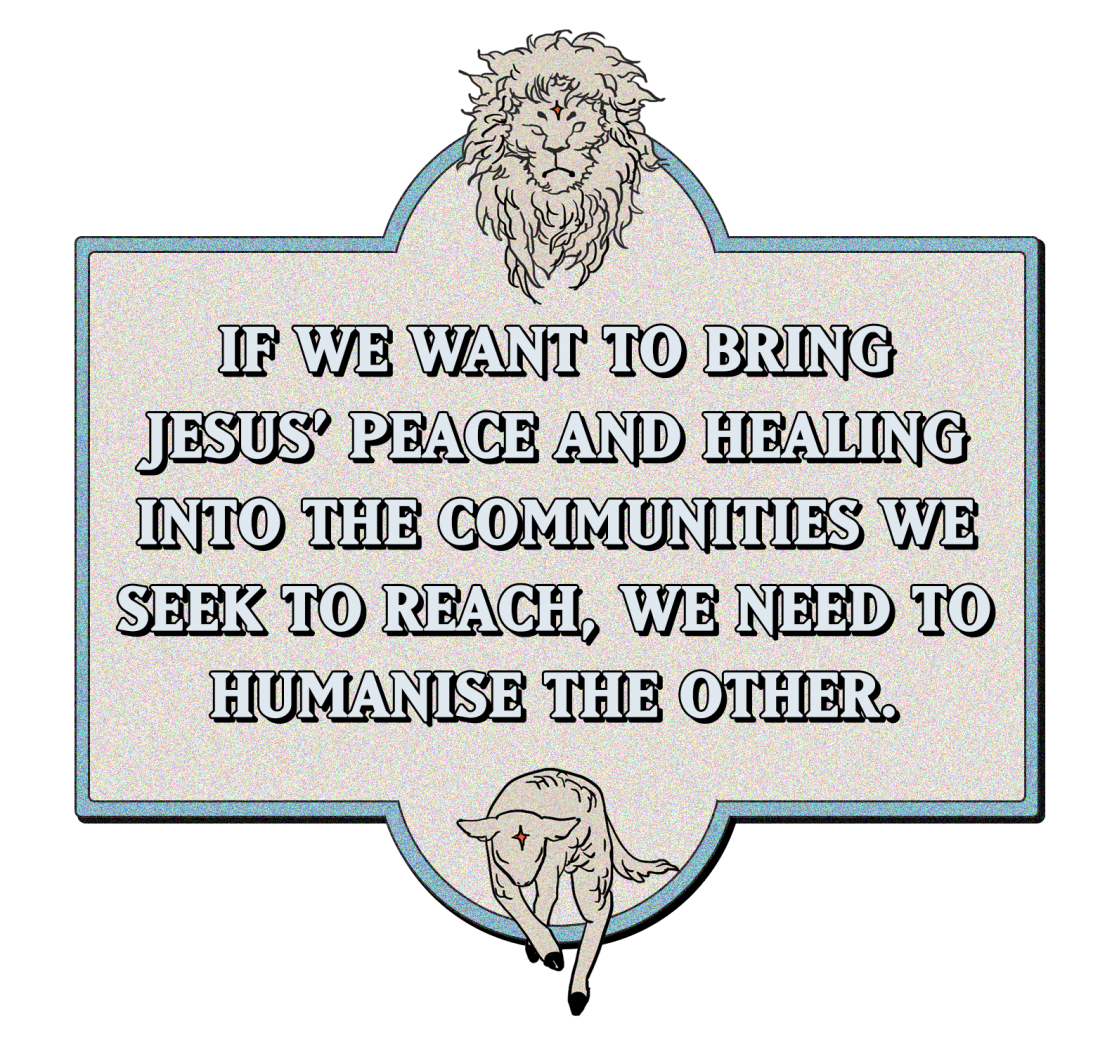
Speaking of divides, one of the panellists also touched on one of the biggest divides between two people groups.
Eugene*, a student who spent time in Israel and visited the West Bank as part of his exchange programme, shared this quote by a rabbi as part of a discussion on peace and reconciliation.
“Should Jews celebrate our own liberation even as the Palestinians are suffering?”
He shared this because in the context of the Israeli-Palestinian conflict, many Christians think that they need to take the side of the Israelis.
But when we realise that both sides are suffering, our personal biases melt away and we can then take the side that matters: Jesus’ side.
“Reconciliation involves setting aside preconceived notions of one another,” said Eugene.
“Rather than asking ‘who’s right, who’s wrong, what must we do now?’, we should try to speak to people on both sides.”
The point is: If we want to bring Jesus’ peace and healing into the communities we seek to reach, we need to humanise the other.
3. WE DON’T HAVE TO FEAR SUFFERING
As the conference went on, I started to feel overwhelmed by all the stories of suffering and bravery in the mission field.
My work, my ministry, my Christian existence… they all felt so small in comparison. And it seems I wasn’t alone.
One pastor who attended the conference reflected: “As I continued to listen throughout the three days, I faced a number of recurring fears: ‘God, I could never be that. Who was I, compared to these giants of the faith? What if I am never called? Or worse yet: what if I’m called, and I fail?’”
Thankfully, this was eventually addressed by many of the speakers.

For instance, Bryan Long, founder of Unaverage, a people- and venture-building enterprise, had this to say in response to a question on how we can foster a more grassroots missional culture in our churches.
“We need to take away the stigma of failure. Tell people that they do not need to start big. Be less kiasi, where every programme must be successful.
“Failure is the first attempt in a learning journey.”
Having this kind of culture means that we don’t have to wait for big church initiatives to do missions — all of us can start somewhere, locally or overseas, big or small.
Because God has uniquely placed each one of us in positions to share in at least one other person’s suffering and meet his or her needs.
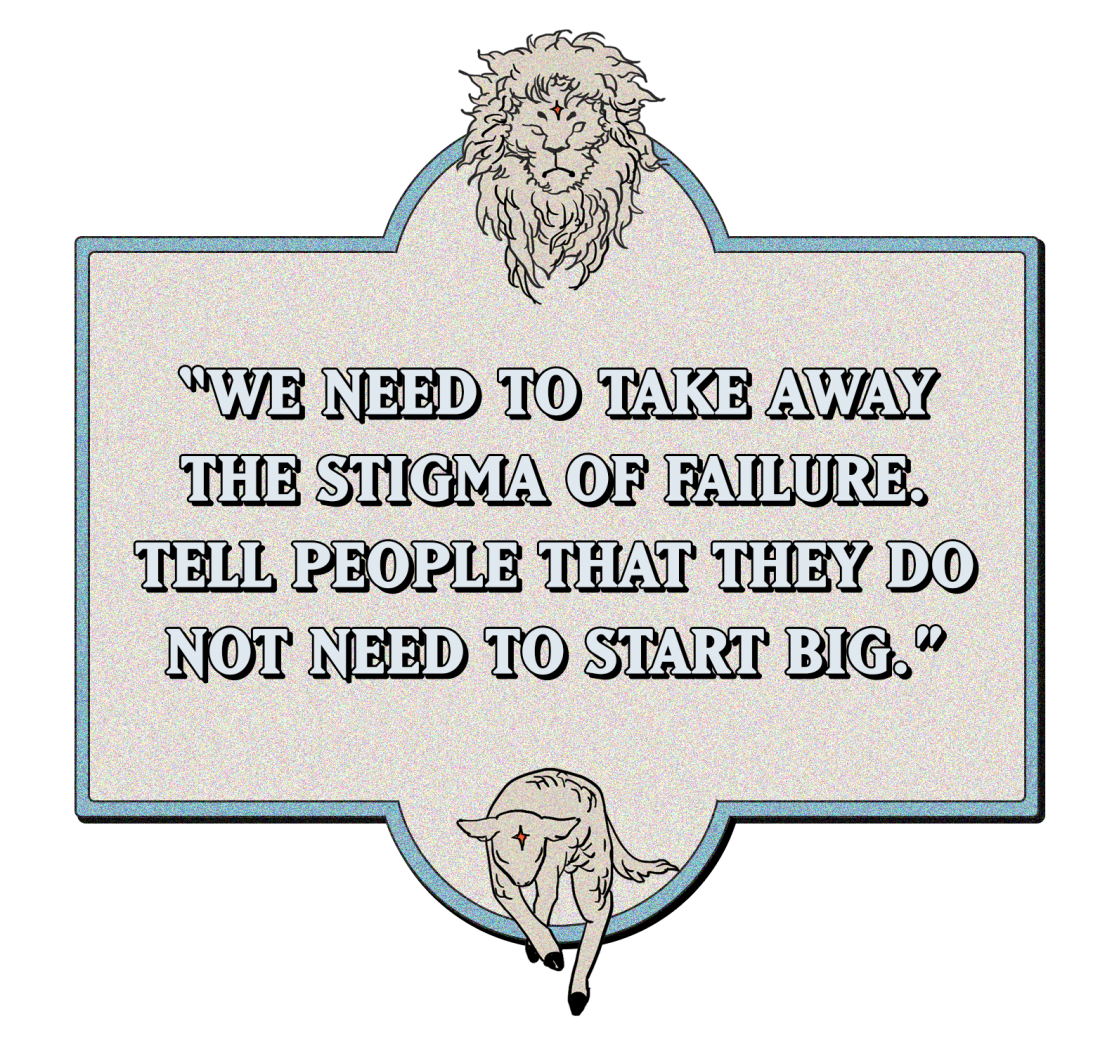
4. IT’S NOT ABOUT SUFFERING NEEDLESSLY
However, this doesn’t mean we should be impulsive.
“There is a tendency for God’s global servants to trade suffering stories like a badge of honour. I don’t think that’s the right spirit,” remarked Jemima*, a cross-cultural worker to East Africa.
“When you’re too garang, you might unnecessarily endanger the lives of the locals around you, who live with the consequences. If you don’t find time to rest, not only will you end up suffering needlessly, but those you are ministering to will as well.”
So how can we tell if we’re suffering for the sake of it, or if God is the one calling us to take risks and suffer?
“God speaks in ‘surround sound’. He will give you clarity if He wants you to go into life-threatening spaces. We want to be doing something because it’s where the Holy Spirit is leading us, not just because we think it’s a good idea,” advised Jemima.
“There’s a difference between a fantasy and a dream from God. A fantasy is a bit escapist in nature. A dream from God — He prepares you for it, He guides you, He grows you into that space.
“He surrounds you with the right people. You know that these don’t come from your own hand, but the hand of God.”
5. THE ABILITY TO SUFFER DOESN’T COME FROM OUR OWN STRENGTH
At the end of the day, what became clear was that all these cross cultural workers were really just ordinary Christians like you and me.
They attributed their call and courage not to their own strength, but to their relationship with God.
“I don’t feel very courageous. I feel very loved. Perfect love drives out fear. Counting the cost? When you’re in love, no sacrifice is too great,” shared Jemima.
“The first-century disciples’ inner life was grounded on a deep relationship with God. Let God love you, let God pursue your heart. Know what it’s like to be in such close communion with Him.
“You can establish that relationship and history with God even here in Singapore, so that you know how to lean on Him when times get tough.”
She also encouraged participants to develop “sacred pathways” that would help us experience His presence, especially when difficult situations arise.
“You can’t really bring much material things with you into the mission field, but what you can bring is a deep standing with God that will allow you to transcend any circumstances.”

Another cross-cultural worker who used to be in a war zone echoed Jemima’s point about courage coming from God.
“As a child, I was timid and bullied,” said Bee Cheng*, who witnessed one too many friends being buried before their time.
“But eventually, God led me to a stage where I could confront men with guns. It was a step-by-step journey of faith, of trusting and believing God and His Word.”
“I found that if I had stayed in Singapore all these years, I would not have learned to trust God as much as I have now.
“(To know) that He is worthy, that He keeps all His promises. With God, all things are possible.
“So the Bible came alive through all these experiences, knowing that my life is in God’s hands.”
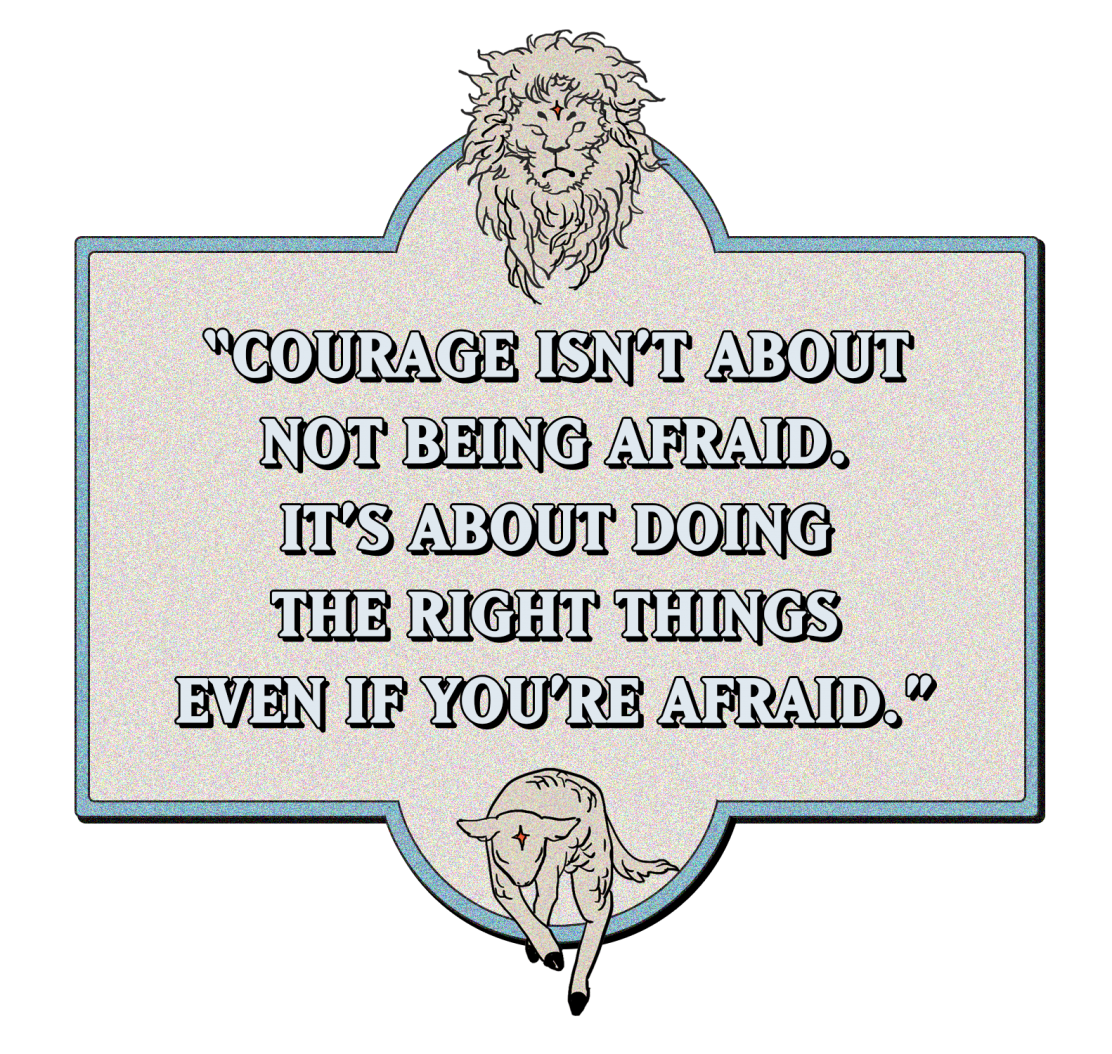
“To this you were called, because Christ suffered for you, leaving you an example, that you should follow in his steps.” (1 Peter 2:21)
To walk the path of Jesus is to walk the path of suffering.
You may feel inadequate. You may fear suffering.
But that’s okay. You have all those things in common with these global servants.
After all, courage isn’t about not being afraid — it’s about doing the right things even if you’re afraid.
*The full names of these global servants have been withheld for security reasons.
- What does success in missions look like to you?
- If our courage comes from being loved by God, how’s your relationship with Him?
- Is there an area of your life that God might be calling for you to be courageous in?
- Have you had an experience of greater joy in the midst of suffering?
- Do you sense that you might have a call to share God’s love with the nations? Take time to pray about it and talk to others about it!


